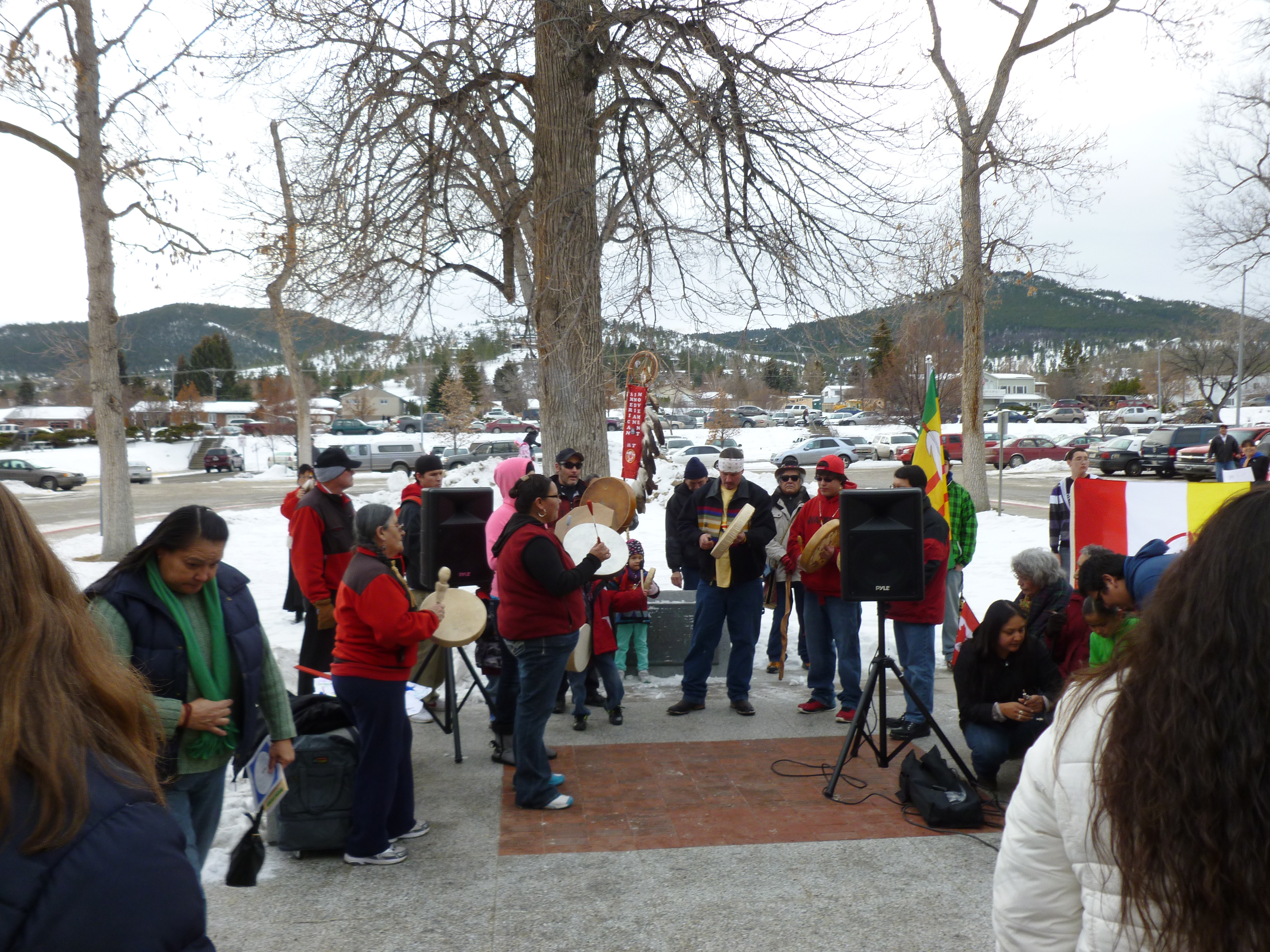Idle No More, the Effective Voice of Indigenous Peoples
Idle No More, the Effective Voice of Indigenous Peoples

At the meeting with Prime Minister Harper on Friday, it is clear that the Assembly of First Nations (AFN) again consolidated around the weakest. Needless to say the stronger elements of the AFN who did not want to meet did not attend the meeting, but the ones who wanted to meet did. Decision-making in the name of the AFN is not designed for fighting government, but merely consulting with government. That is how the weak elements take control in a controversial situation such as we had in Ottawa last week.
The National Chief obviously is responsible for what his Office does in these kinds of situations. One thing is clear: that certain Indigenous leaders only know how to meet with government and not fight with government. In situations like Friday they say that it is important to "engage" with government when they open the door to discussion. The real problem is that you get sucked into basically supporting the government's position unless you walk out. In this case it is just another "process" and not "change in policy" that the AFN left the room with.
The opportunists will say that if we did not "engage" we would not have this process but the process does not offer any guarantee that Harper's unilateral policies will be reversed or replaced with policies supportive to Aboriginal and Treaty Rights. There is basically a "fundamental change" that Harper must make before "engaging" with Harper could be useful. The Harper government does not recognize Aboriginal and Treaty Rights on the ground. Indigenous Peoples believe in Aboriginal and Treaty Rights on the ground.
That is the "fundamental difference". Harper must recognize Aboriginal and Treaty Rights on the ground before we can engage. The engagement in this case will be based on how do we divide up decision making regarding "access and benefits" to our Aboriginal and Treaty territories. To try and engage and negotiate with opposite differences on "recognition" and "extinguishment" is dangerous and will go nowhere. That is why the negotiation under the federal Comprehensive Land Claims Policy and British Columbia Treaty Process has cost us 20 years of Go-No-Where negotiations plus those who negotiated taking crippling loans of about $500 million dollars.
We need to always be careful when establishing "processes" with government, like the one initiated on Friday. The government has lots of time and money to negotiate. It is the Indigenous Peoples who get hurt by Go-No-Where and undermining processes. Some Indigenous Leaders actually just negotiate to "create processes" because processes equals getting a "jobs and money" because processes also "include government funding pots". These kinds of leaders I call "opportunists" because they take advantage of "pressure created" by Chief Theresa Spence hunger strike and the Idle No More movement (INM) to get meetings with Harper on Friday. The opportunist then push a process and get their pot of money. Kind of like a political Slot-Machine for Indigenous politicians and consultants.
In BC I think the INM has to seriously question the First Nations Leadership Council, First Nation Summit, the BC Assembly of First Nations and especially the Union of BC Indian Chiefs. I highlight the UBCIC because when the Union was under the leadership of my dad and brother it was for the people. I know that Grand Chief Stewart Phillip, president of the UBCIC was not at the meeting but I think that he should be clear how this meeting will affect his participation in the BC First Nation Leadership Council and the First Nation Summit.
Arthur Manuel is a spokesperson for Defenders of the Land and the Indigenous Network on Economies and Trade, and former Chief of the Neskonlith Indian Band, Secwepemc Nation.

